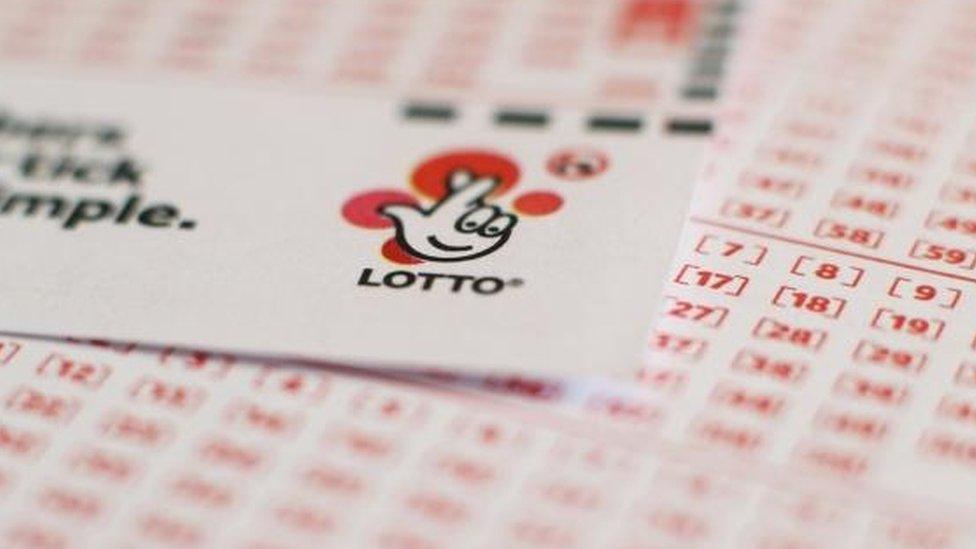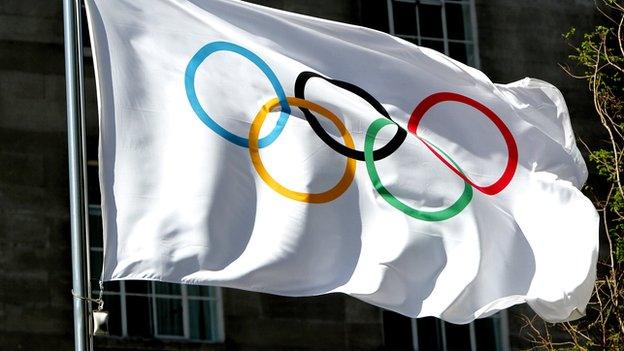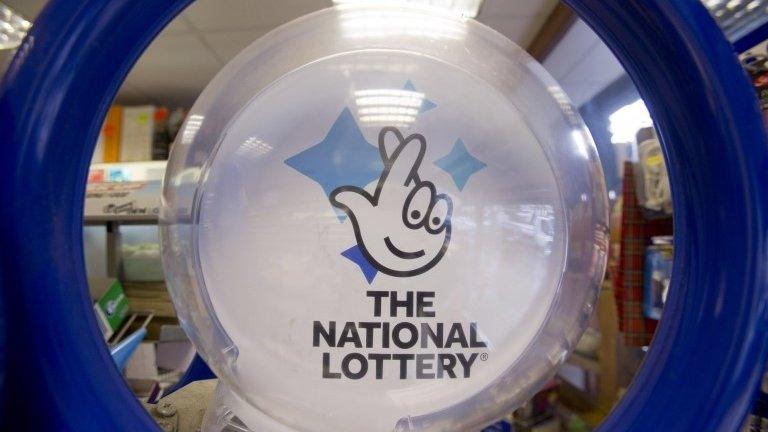National Lottery: Regulators 'to review length of licences'
- Published
- comments

Camelot has run the Lottery since its creation in 1994
The length of future National Lottery licences could be reviewed, MPs have been told, amid criticism of the 14-year contract awarded to Camelot.
The head of the Gambling Commission said such long licences were rare in the public sector and hinted the next contract in 2023 could be shorter.
Sarah Harrison also defended changes to Camelot's "incentive framework" which critics say have boosted its profits.
She said the 2012 move also improved sales and returns for good causes.
At a hearing in Parliament, MPs on the Public Accounts Committee expressed concerns at what they said was the 15% fall in income from the Lottery going to good causes - projects in sports, the environment, charities and the arts - last year and said there were no signs of an improvement this year.
But giving evidence to the committee, Camelot's chief executive Nigel Railton said the firm hoped to boost sales of its main Lotto draw and instant games by 400 million over the next four years.
This, he said, would generate an extra £60m to £80m a year for good causes.
However, he acknowledged draw-based games were declining in popularity and the Lottery had been affected by the BBC's decision to axe its live Saturday night TV draw in 2016 and the Lottery wanted to get back on TV.
Camelot has run the National Lottery since its creation in 1994. It was awarded a 10-year contract by the Gambling Commission in 2009. In 2012, the licence was extended by a further four years to 2023 after Camelot said it would stump up an additional £1.7bn for good causes.
Ms Harrison, who joined the Commission in 2015, was asked whether given Camelot's performance since then the contract extension had been a mistake.
"The work we are doing on starting to look at the next licence competition will ask the question about whether a 14-year contract is right," she said.
"If you look across other regulated sectors, you don't find contract terms of that length and you find other features like re-openers or in effective break clauses, particularly to reflect where environments and market forces change or indeed where policy shifts."

Good causes income goes to a range of projects, including Olympic and Paralympic athletes
Conservative MP Sir Geoffrey Clifton-Brown, who chaired the hearing, suggested the deal Camelot got in 2012 was "slightly too generous" given what he said had been the 122% rise in its profits since 2009-2010.
"Profits have risen particularly rapidly since the March 2012 licence renegotiation which suggests Camelot secured too good a deal at that time," he said.
Ms Harrison conceded changes to the contract at the time - which saw Camelot retain 70p of every £1 in efficiency savings it made in its operations with 30p going to good causes - had boosted its bottom line.
But she said this was largely a "coincidence" given that Camelot was negotiating a lot of supplier contracts at the time and the changes had also helped increase investment in the Lottery and boosted ticket sales.
"Good causes have benefited," she added, citing figures indicating spending was, on average, 30% higher each year since the licence was awarded in 2009 and 32% since it was extended in 2012.
'Market signal'
While regulators were constantly looking at way to improve returns, she said it would be a mistake to accede to calls to re-negotiate the licence.
"It would be misleading of me to suggest it is appropriate, at this stage, to completely turn the existing licence inside out and negotiate afresh.
"We want the principle focus of Camelot to be on improving its performance in trading and in other areas.
"And secondly because there is an important market we want to create for new investors coming in and we don't want to send the wrong signals to that market and competition about how this licence is operated and how this asset is run."
The most senior civil servant at the culture department, Sue Owen, said sales figures in the past two years had been "disappointing" which she put down to fewer huge rollovers, changing player behaviour, such as the increased popularity of scratch cards which offer a greater chance of winning but lower prize funds.
About 34p for each £1 spent on draw-based games bought online goes to good causes compared with about 5p to 10p for scratch cards.
Camelot, she said, had committed to looking at its marketing, digital and retail strategies while also making structural changes within its own business.
Mr Railton also told MPs that Camelot had doubled the amount it gave to Gamble Aware on a voluntary basis but insisted most players regarded themselves "not as gamblers but lottery players".
- Published16 December 2016
